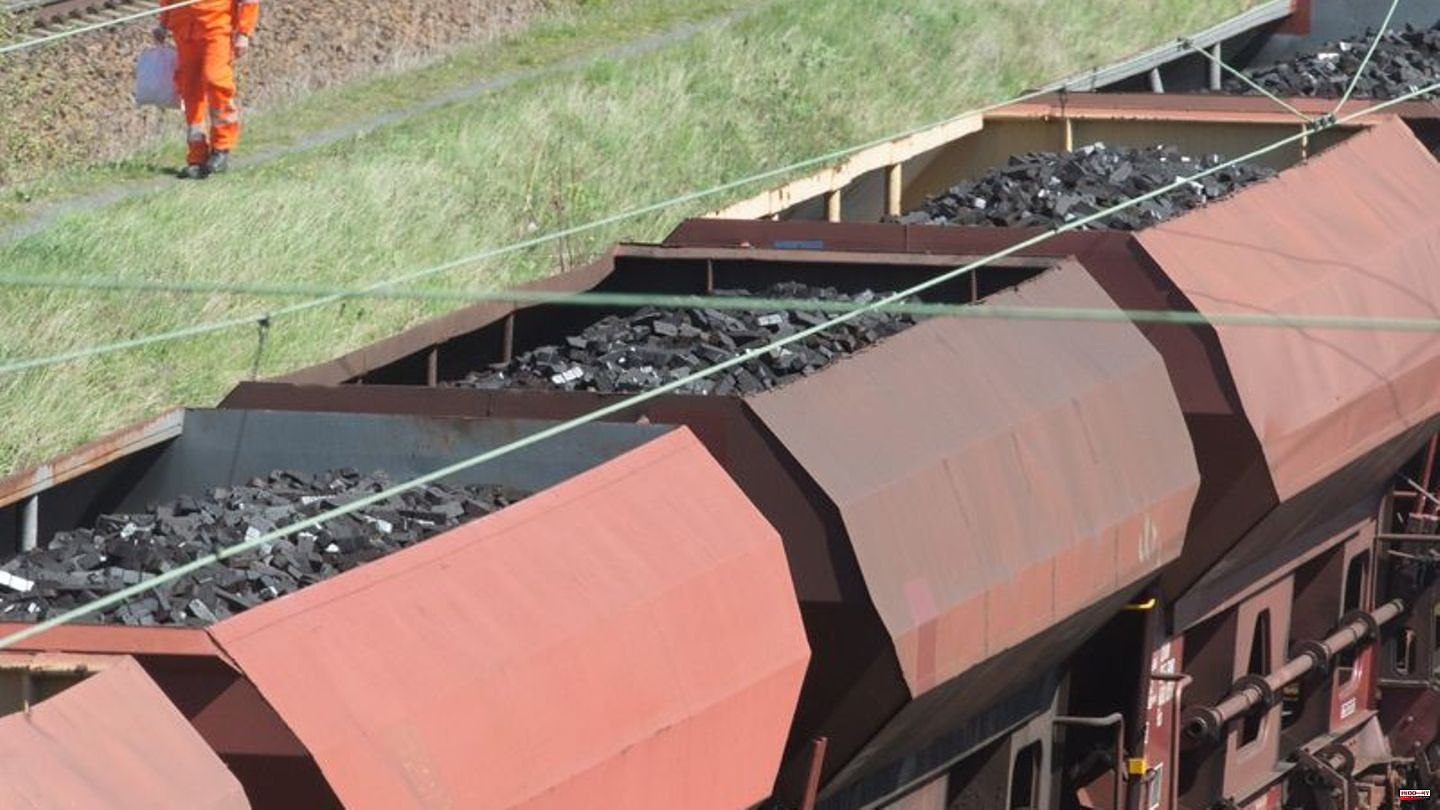The Association of Coal Importers (VDKi) insists on more planning security for the increased use of coal to generate electricity during the energy crisis. The association emphasized that this is important in order to create the necessary capacities for handling in European seaports, but also for transport.
He sees no problem getting enough coal to the European ports, said VDKi CEO Alexander Bethe. Two thirds of German imports went via Amsterdam, Rotterdam and Antwerp. "However, there are bottlenecks in handling, the terminal capacities are limited. They have been scaled back significantly in recent years, and now staff are needed again," says Bethe. "But you only get that if there is also a perspective. Nobody in the big seaports hires people in the long term just because German politicians say: We have to temporarily increase import volumes by April."
electricity production
The federal government wants to increasingly produce electricity from coal again in order to save gas during the energy crisis. Since July 14, an ordinance has allowed hard coal-fired power plants to be put back into operation from the so-called grid reserve. However, this is linked to the currently applicable alarm level of the gas emergency plan and is also limited to April 30 next year.
Deputy CEO Stephan Riezler reported that contract terms up to 2025 are being discussed in negotiations with terminal operators. "The transport of the coal to the German power plants is also a problem because they are not close to the coast. Most are on the Ruhr and Saar, some are still in southern Germany and two are in Berlin." The coal can be transported by ship if the river levels are high enough, or by train - but here, too, negotiations are difficult. "Providers have to invest to repair old wagons. To make it worthwhile, they need more predictability. March 2024 would be the absolute lower limit."
Transport by truck is not an alternative, stressed Riezler. "For the Saar power plants alone, a truck would have to leave Rotterdam every four minutes - 24 hours a day, seven days a week."
The federal government should extend the term of the reserve regulation at least until March 2024, Riezler demanded. In addition, the link with the gas shortage must be eliminated. "The return of hard coal-fired power plants to the market requires power plant operators and service providers to increase their workforce and invest. The short term of the regulation until March 2023 places considerable and unnecessary risks on power plant operators and service providers."
At the beginning of August, the Mehrum power plant in Hohenhameln, Lower Saxony, which belongs to the Czech energy group EPH, was the first hard coal-fired power plant to be pulled from the reserve. At the end of August, the Heyden power plant in Petershagen, North Rhine-Westphalia, on the border with Lower Saxony, went back online.







